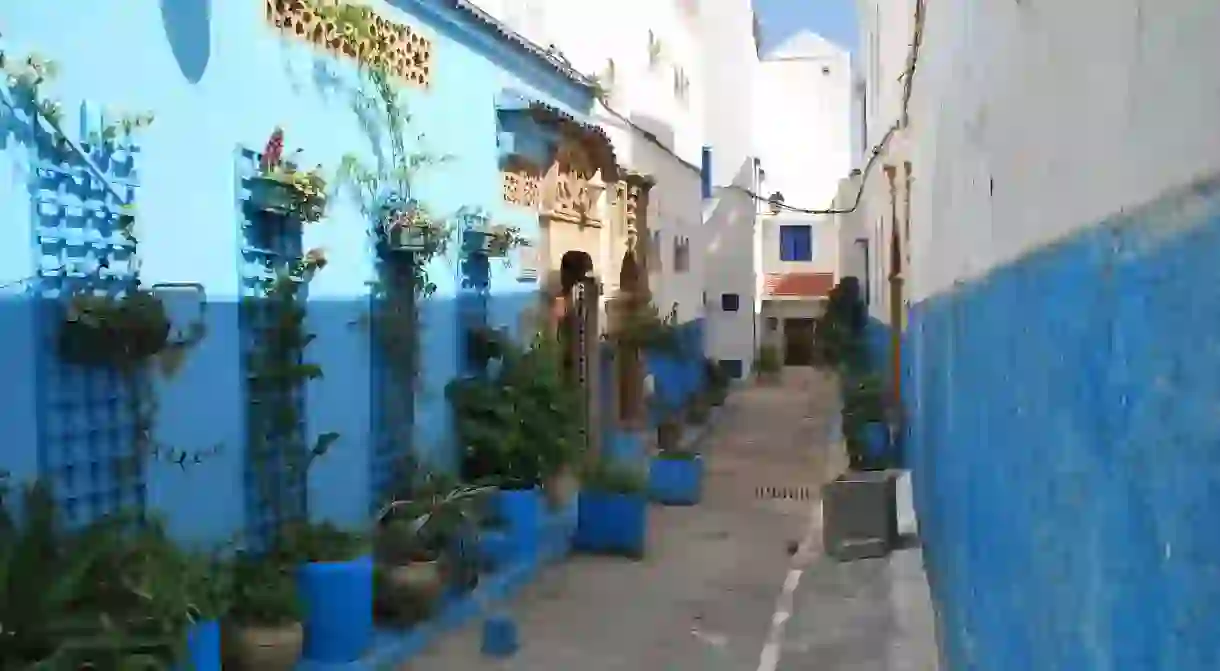10 Top Architectural Landmarks in Rabat

Here are the architectural landmarks you cannot miss in Rabat.
Tour Hassan
Archaeological site

Started by the Almohads, Hassan Tower was intended to be the minaret for what the ruler, Yaqoub al-Mansour, wanted to be a majestic mosque. The beautiful and intricate designs on the tower, as well as the open and intriguing surroundings, make it a must-see. Just opposite lies a beautiful tomb of King Mohammad V and his two sons. Visitors will be entranced by the gold-leaf ceiling and captivating carvings that lie inside the plain white building.
Abul Hassan Medersa
School

This impressive building was built between 1333 and 1341 under the Marīnid Dynasty and was created to teach young boys about religion and science. The hand-carved ceilings and mosaics on the walls speak to the great artistry of the period. This school is a miniature of the amazing Medersa Bou Inania in Fez. The entrance fee is 10 MAD (£0.76).
Chellah
Cemetery

Medina Gates
Archaeological site

The Medina gates they reflect the real authenticity of the Medina and how everything revolved around it. As seen in many Hollywood movies, the medinas were the ‘cities’ and main meeting point of many travellers and inhabitants for the weekly market, where vendors could exchange objects and sell livestock. The first neighbourhood the French chose to live in at the start of the protectorate was near Babalou (The High Gate), where the French influence is still present. Bab El Had is located near Babalou and is the only gate still open, while Bab Rouah and Bab El Kebir are closed and only on display.
Royal Mausoleum of Mohamed V
Archaeological site

Kasbah of the Oudayas
Archaeological site

The Andalusian Gardens
Ruins

Cathédrale Saint-Pierre de Rabat
Cathedral

This Catholic cathedral was built during the French protectorate in 1919 and was finished in 1921. Its architecture is a style from the 1930s that remains intact, just like many of the houses in that neighbourhood, which are now considered to be a cultural heritage. It’s still in use and open to the public.
The Royal Palace
Archaeological site

Medina
Market














